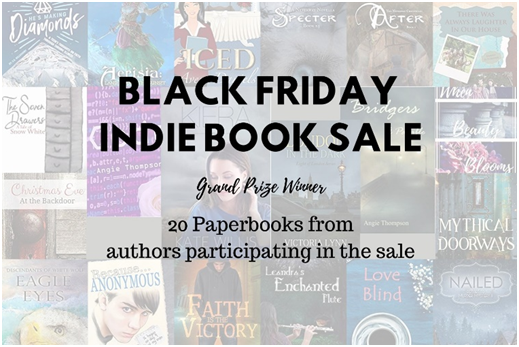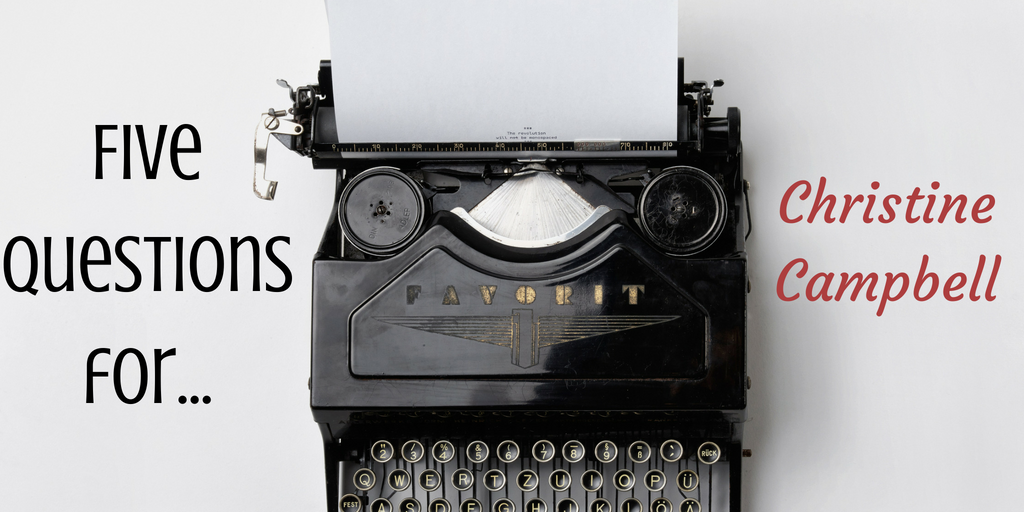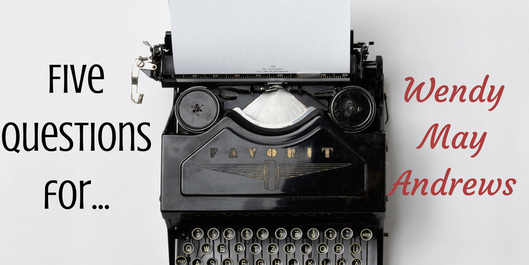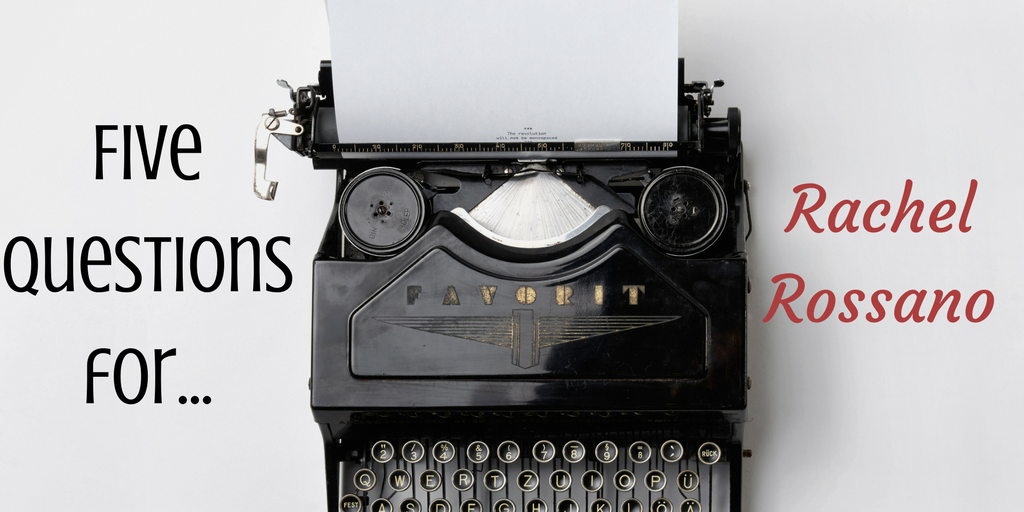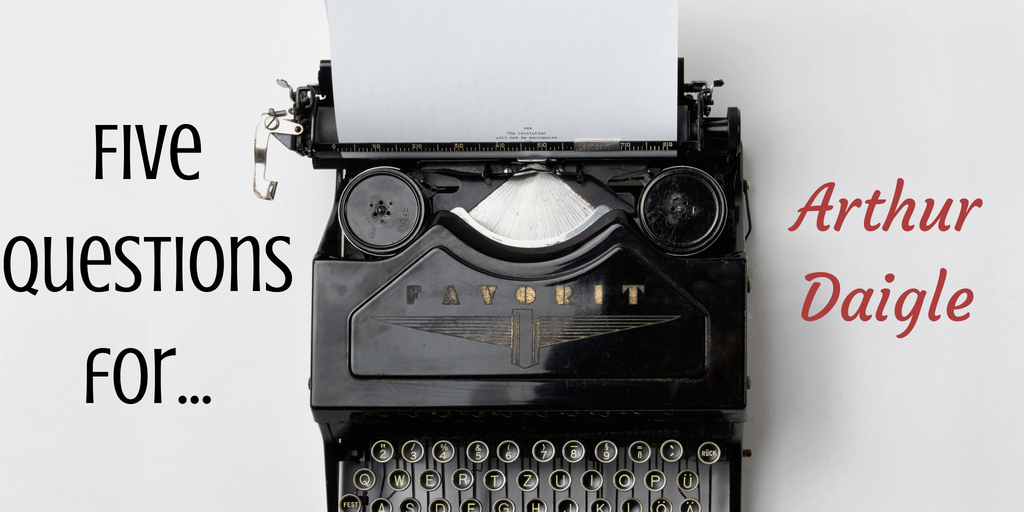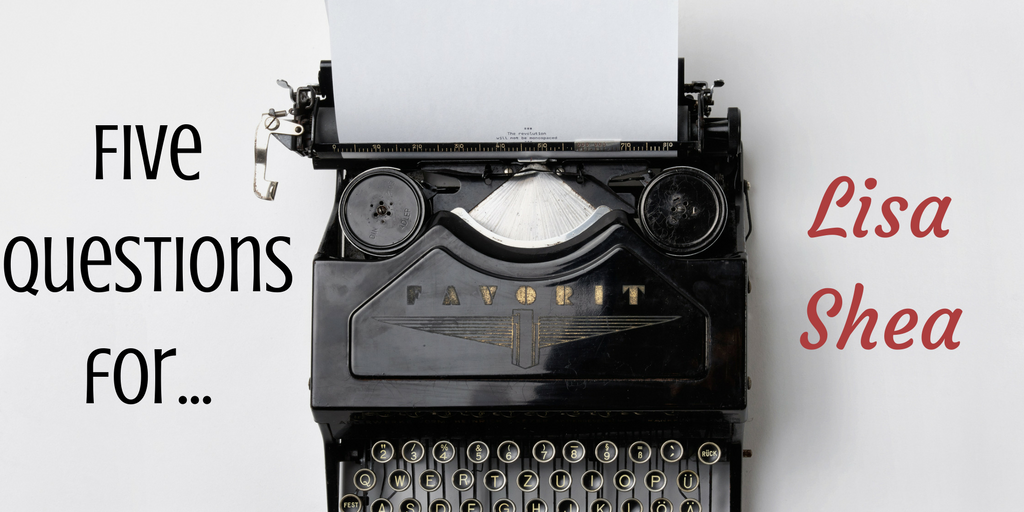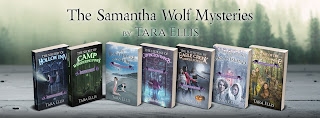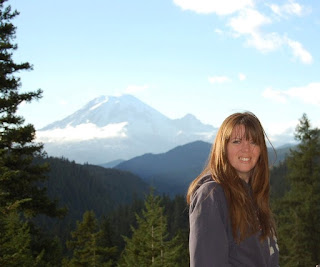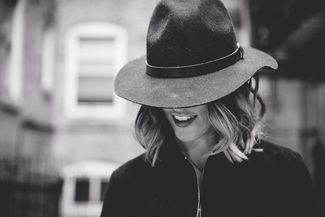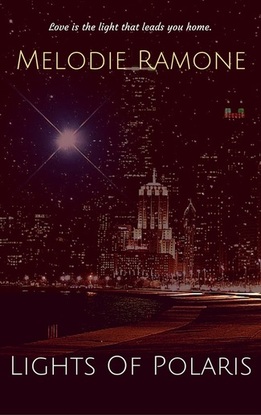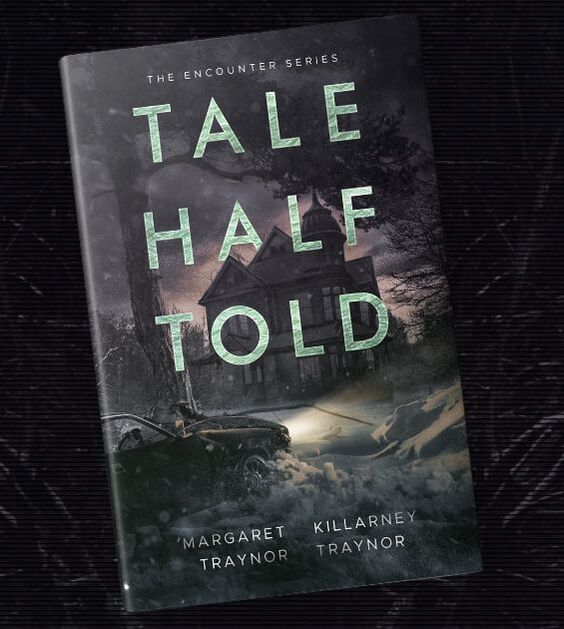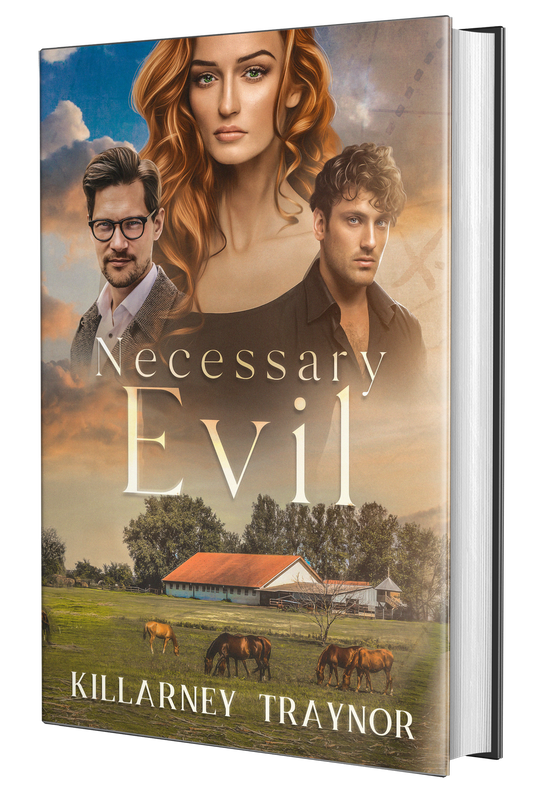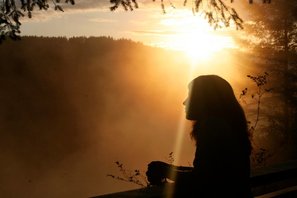 Don’t believe all the hype. Sarah Ashwood isn’t really a gladiator, a Highlander, a fencer, a skilled horsewoman, an archer, a magic wielder, or a martial arts expert. That’s only in her mind. In real life, she’s a genuine Okie from Muskogee, who grew up in the wooded hills outside the oldest town in Oklahoma and holds a B.A. in English from American Military University. She now lives (mostly) quietly at home with her husband and three sons, where she tries to sneak in a daily run or workout to save her sanity and keep her mind fresh for her next story. Part of the epic Black Friday Indie Book Sale, I was luck enough to get to interview her this week! 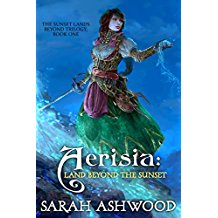 1. What are your books about? I tend to write a little of a genre mashup. My current Sunset Lands Beyond trilogy are portal fantasies, centering around a parallel world, Aerisia. They could be considered portal fantasy and epic fantasy, with a side dash of romance. Coming in December is an entirely different work, Knight’s Rebirth, that’s a fairytale fantasy. That’s the best way I can think of to describe it, anyway. Knight’s Rebirth is sort of a humorous take on the larger than life aspects of common fairytale themes. Currently, I’m working on an urban fantasy project for Nanowrimo called Ashes on the Earth that concerns a naive, human girl getting thrust into a world of warring shifters. However, when I started this project, I knew I didn’t want “standard” shifters, such as werewolves, wolves, panthers, bears, etc. My shifters change into creatures from legend, mythology, and folklore all over the world. It’s a blast finding new creatures for my shifters’ doubles, and the supply is endless! 2. Who or what inspires your writing? How do you hope your work inspires your reader? I’m inspired by nature, by music, by movies, by books, and by the world and people around me. I have found inspiration everywhere from a dirt road to a sunset to a forest to the 1980’s gangster movie, The Untouchables. I hope my work inspires readers, ultimately, with a sense of hope. I tackle difficult topics in my books, but I always want to write an ending that leaves readers with a sense of hope and of good triumphing over evil. I feel like there’s so much negativity in the world. Fiction should offer some escape. 3. I use soundtracks to help me focus when I write. Do you have any writing rituals or tricks to help you keep in the mood to create? Soundtracks for me, as well! Last of the Mohicans is my all-time favorite, but Pirates of the Caribbean, Gettysburg, Anna and the King, Lord of the Rings, and many others also provide fantastic inspiration. 4. I love fantasy and so I have to ask: Who is better, JRR Tolkien or CS Lewis? Or, if not these, who is the King of Queen of Fantasy? Ah, I definitely enjoy Narnia and its world, but, to me, Lord of the Rings is the ultimate in epic fantasy. 5. What's next for you? As I mentioned, Knight’s Rebirth is set to debut in December. After that, I plan to write and rapid release Ashes on the Earth and its sequels. Ashes on the Earth is the first book of the Stones of Fire series, and it’s plotted to be a four, possibly five, book series. Following the release of Stones of Fire, I will go back and finish up my second Aerisia series, Beyond the Sunset Lands. (Book 1 is available now.) Find Sarah on Amazon.com!
0 Comments
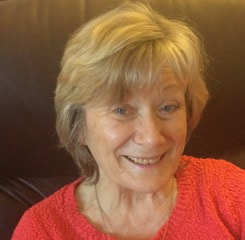 1. Hi and welcome to Wanderings! Our audience is dying to get to know you, so tell us a little bit about yourself! Thank you for having me. It’s nice to be here. I’m what would qualify as a ‘lady of mature years’, having raised five children, unofficially adopted another, who between them have brought twelve gorgeous grandchildren into my life, two of whom are now married. It’s rather disconcerting to also be mother to a grandfather, since we now have a great-grandchild. Yikes! Where did the time go? And here I am, only 26 years old! The upshot of all that is that I have loads of life experience to bring to my writing, as you can perhaps imagine. I’ve always been a writer. It captured my heart as soon as I realised I could express myself that way, and I used to love essay writing at school. I wrote articles for the Women’s Page in a local newspaper when my children were young. Then progressed to short stories for magazines. And now, I write Contemporary Women’s Fiction, and have 9 published novels sitting on my bookshelves. I’m currently enjoying a bit of a departure out of my comfort zone and have a historical romantic strand in my contemporary work in progress. It’s still in the early stages, but I’m thoroughly enjoying the research I’m having to do and the adjustments I have to make to my writing style to invoke a different era. 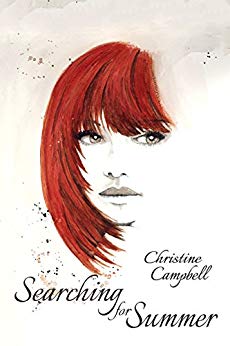 Although I was born in London, England, I have lived most of my life in Scotland - ten miles outside Edinburgh for the past forty or so years and my novels are all set in and around Edinburgh, though some of them wander elsewhere in Scotland in the unfolding. I love going ‘on location’, checking out the settings and making sure of my facts. 2. What inspires your writing? Stories! I have so many stories buzzing around in my head all the time. It’s great to have a way to record them. I’m a ‘people person’, sociable and interested in people of all sorts. A ‘people watcher’ too, making up stories about the man running for the bus, the woman in the checkout queue ahead of me who has rather a lot of wine in her basket, or the teenager looking round furtively as she walks along the street. My novels are very much character-based as a result. There’s always a story, but it’s people who inspire me. 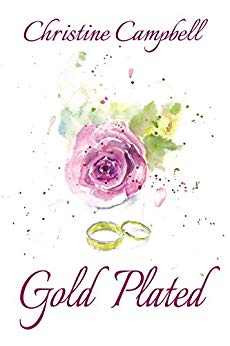 3. What inspired you to write Gold Plated? My latest release, Gold Plated, was inspired while I was on holiday in 2016. My husband and I were walking on a beach in the North of Scotland. Often, walking is a great time to chat, sharing thoughts and dreams, decisions and schemes, but today we were silent. There was a heavy mist on the North Sea and the horizon was hiding, taking our words with it. There was something about the haar: it silenced birds, the wind, the whisper of long grass as well as our words - but it couldn’t silence the continuous rolling waves as they broke onto the beach - and it couldn’t silence our thoughts. Often, thoughts would tumble out of our silence and we would share them. There was no reason not to today - yet we didn’t. We were enjoying a world shrouded in a soft, white veil, from which rays of sunshine struggled to break free while the sea, ruthless, relentless, ripped through to crash on the shore. I didn’t ask what he was thinking, but concentrated on the story that was forming in my mind. We were here on vacation with our family and there, set like a pearl in the middle of the two weeks in 2016, was our anniversary. Forty-nine years of married bliss. But that’s never true, is it? No-one is perfect, so no two imperfect people can forge a perfect marriage - not even us. We’d had ups and downs - never ins and outs - and some years were better than others - but we’d never not wanted to be married to one another. Our children had asked what we wanted to do to celebrate our Golden Wedding Anniversary the following year, 2017. The conversation still swirled in my mind as my husband and I walked in our misty, magical silence. Then, in a sudden rush of gold, the sun won the struggle to light the world, compelling us to pause to take a few photographs. I stood at the water’s edge. Wave after wave of water rolling in, breaking with cold white froth over the landscape of the beach - year after year of life rolling in, breaking with warm love over the landscape of our marriage. But what if? What if it had been different? So I wrote a story about a very different couple who had a very different fifty-year marriage from ours. 4. What is your new book about? Gold Plated is about a couple, Rosanna and Paul, who are celebrating fifty years of marriage. When the story starts, their daughter, Heather, is helping Rosanna plan a Golden Wedding Anniversary party, and it looks like being a wonderful night: sixties music, all their friends and family present, good food and a beautiful location. Rosanna has been wresting with what to get the man who has everything, but has now bought the perfect golden gift for Paul: “I can already feel the glow in my cheeks at his surprise in my choice. I think he assumes I’ll be getting him solid gold cufflinks or something.” When an uninvited guest shows up at the party, Rosanna’s world is shaken and she is forced to look back over their fifty golden years and see them as they were. Were they golden? Or just gold-plated? So this book traces the ups and downs and drama of a love affair that lasts more than fifty years, surviving against all odds - but has it? And will it continue to survive? 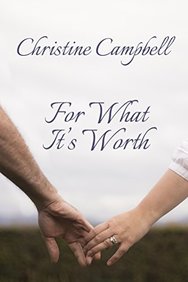 5. Romance is the best! Which classic couple is your favorite: Elizabeth and Darcy? Jane Eyre and Mr. Rochester? Romeo and Juliet? Or do you have another favorite and if so, what makes them the best? Of the ones you mention, I’d have to say Elizabeth and Darcy. I think theirs would be a love that would last. They were both mature and made their decision to marry based on a love so deep it was able to overcome the constraints of the era. I don’t usually write romance novels as such, though there is always some romance in the course of telling the story. I write about life, relationships, family - and romance is certainly part of that, just not always the main story line in my novels. Having said that, this latest one, Gold Plated, is a love story so plenty romance in it. In fact, it is Contemporary Romantic Fiction. All of my books, including Gold Plated, are ‘clean reads’ with no sex, swearing or gratuitous violence. I find it’s possible to allow the reader to feel romance and emotion without being graphic, by using a few well-chosen words and phrases. Like Jane Austen in Pride and Prejudice, it is possible to show passion in your writing while still keeping the book family friendly. Bonus Question: So, you’ve just written a book: what’s next? Another book of course. Set in Scotland again, this time partly contemporary and partly set in the early years of the 20th Century. And I’m having a great time writing it. Check Out All of Christine's Links Here!Amazon author page: http://author.to/ChristineCampbell
Blog: http://cicampbellblog.wordpress.com Facebook: https://www.facebook.com/WriteWhereYouAre Twitter: https://twitter.com/Campbama Instagram: https://instagram.com/christine_writes/ Facebook Group: Christine’s Kist Of Stories: https://www.facebook.com/groups/199853890760414/ YouTube Video: https://youtu.be/Cw0Dyt1Yeq4 Trailer for The Reluctant Detective Series: https://youtu.be/kg8HIhMszg4 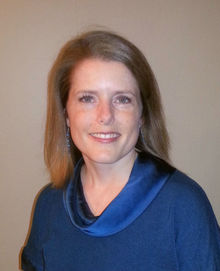 Canadian author of 8 novels, Wendy May Andrew Canadian author of 8 novels, Wendy May Andrew 1. Hi and welcome to Wanderings! Our audience is dying to get to know you, so tell us a little bit about yourself! Hello, and thank you for having me by. I’m the proud author of eight sweet, historical romance novels. I live in Toronto and love living where I can walk to everything. But we also love to get out of the city and hike in nature. Like most authors, I started out as an avid reader and I still love to read. Another passion of mine is travel. My husband actually inspired both of these loves. He dared me to start writing and he’s the one who got me hooked on travel. I’m also “trying” to get addicted to exercise since both reading and writing are sedentary activities and I want to be healthy enough to keep pursuing my interests until I’m old and gray. 2. When did you begin writing? What inspires your writing? For me, these two questions go together. I’m an avid reader, as I said. If I’m reading a good book, even if the house exploded, I might not notice until I finished. My husband, not an avid reader, doesn’t love this particular quality. He used to complain about my reading and suggest I ought to be writing books instead of reading them. Finally, when I wouldn’t stop reading, he challenged me to write a book before I read another one. I didn’t think I could do it, but I accepted his dare and stuck my behind in front of my computer and gave it a shot. The end result, after a year or two of hard work, was my first published book, Tempting the Earl. Now I love writing almost as much as reading, but it doesn’t preoccupy me in the same way so my husband doesn’t mind nearly as much. And I love my husband dearly so I would say he’s my inspiration. This challenge took place about ten years ago with my first book getting published in 2010. 3. Family is so important! How does your family inspire and support your work? My husband is very supportive. He thinks it’s great that his wife is a published author. He “lives” every book along with me. While we both know my characters aren’t real, we have been known to discuss them as though they were. If anyone ever overheard us, it would be hilarious! And my parents are my biggest fans! They read each draft of every book and then buy it when it releases. They are my motivation because they’re always anxious for the next one. 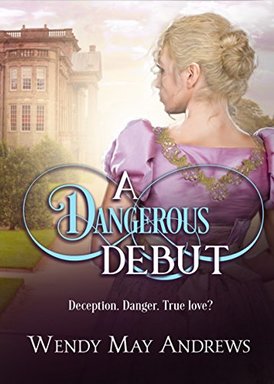 4. I know you love to travel! Do you set your stories in places you’ve been? Yes! But I did it in reverse. I started writing my books set in England before travelling there. I had just signed the contract for my first book when we went to London to celebrate. It was a wonderful trip. We went to so many museums. There’s a museum of interiors where they have the same townhouse but how the interior would have changed through the years – VERY cool!! And then in the summer of 2016 we went again to explore places outside of London for my characters to visit – Brighton, Southampton, Bath, Salisbury, Marlborough, Blenheim… Such a fantastic trip. And SO much inspiration!! I’ve just started writing a series based on inspiration I received on that trip. 5. Where would you rather live: Avonlea with Anne? Or Concord with the March sisters? Why? It’s hilarious you would ask this question – my first two favorite authors were Louisa May Alcott and Lucy Maud Montgomery. I want to say it’s a tie, I would love to spend time with both Anne and the March sisters. But I’m actually from Atlantic Canada, even though I now live in Toronto, so I’ll say I would rather live in Avonlea with Anne. Prince Edward Island is beautiful. And I think Anne (with an “e”) might be a little more peaceful of a companion than being in the midst of the four March sisters. I have read all the Anne books and all of “Jo’s” books multiple times. Now that you’ve reminded me of them, I should dig them out and read them again!
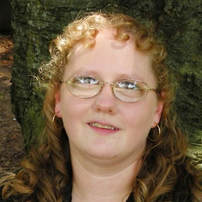 Homeschooling mother of three and author Rachel Rossano Homeschooling mother of three and author Rachel Rossano 1. Hi and welcome to Wanderings! Our audience is dying to get to know you, so tell us a little bit about yourself! Thank you for having me. I am a happily married homeschooling mother of three kids. Writing is my passion and cover design my hobby. I love a good story. If I can’t find one, I endeavor to write one. 2.What inspires your writing? Life inspires me. I love people: how they make decisions, relate to those they love and hate, and what they pursue. Situations can spark ideas. Conversations, visual impressions, and people’s body language all have provoked me to mull over new ideas. 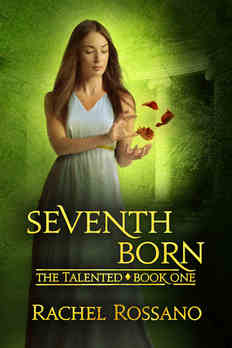 3. What inspired you to write this book? Seventh Born, and the whole Talented Trilogy, started with an idea over a decade ago now. My husband I were having difficulty having children and I was faced with the very real possibility that we would remain childless. As I realized that dream might be slipping away, I prayed a lot, trying to find a new long term dream or goal, a purpose. The answer was publishing. With that in mind, I struggled with the fact that all of the publishers I looked into were not looking for what I wrote: non-magical historical-like medieval-like romance with adventure. So, I decided to try to write straight fantasy. What if one of my main characters were a public official in a country that officially followed a different religion, sort of like the prophets of the Bible? What if I used the seventh son concept that I kept encountering in my reading at the time? What if I threw in some special abilities that could be possibly genetically engineered? But I didn’t want to do science fiction so I set it in a regressed society inspired by some Roman cultural aspects (in their dress, architecture, and vocabulary), but not in everything, which gave me room to world build in new directions. 4. Romance is the best! Which classic couple is your favorite: Elizabeth and Darcy? Jane Eyre and Mr. Rochester? Romeo and Juliet? Or do you have another favorite and if so, what makes them the best? One of my long-time favorite books is Jane Eyre. However, Elizabeth and Darcy hold a close second. Darcy, especially, has inspired a character in some of my books. Lord Dentin of Honor and the Novels of Rhynan series is almost a medieval version of Darcy. However, all that said, I tend to be drawn to romantic couples and their relationships. Realistic romance tends to crop up in all of my books. 5. So, you’ve just written a book: what’s next? More writing and publishing is on the agenda. I currently have five novels (the next two in The Talented series, the first installment in a science fiction series, a contemporary inspirational romance, and then third novel in the Novels of Rhynan series) are in the pre-publishing process. I am currently writing the first draft of a novel in a new series, with at least five more installments planned. I still even more ideas simmering on the back-burner for more novels. I can’t wait to write them all!
Arthur Daigle is the author of the William Bradshaw series, as well as a biologist, avid gardener, and amateur artist. In this week's Five Questions For, he talks about his inspirations and why he isn't the tortured-writer-type. 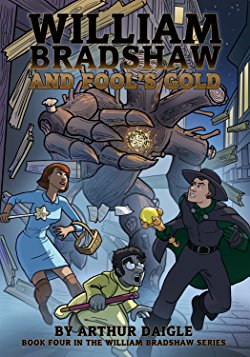 1. When did you begin writing? I started writing back in high school. I had free time between classes and not much to do (I’m not much of a joiner), and I decided to spend some time writing. It’s addictive. My earlier works will never see the light of day, and that’s for the good of mankind, but it was a steppingstone to the work I do today. 2. What inspires your writing? Oh where to begin? I draw inspiration from places you’d expect and ones you’d never guess. Books, movies, TV, dreams, back of the box video game descriptions, and sometimes the ideas just kind of show up, no idea where they came from. 3. What do you hope people get from your work? I want them to laugh so long and so hard that the world looks a bit better when they’re done. 4. I know when I write a book, I always have a particular person in mind as an audience. Who do you write for? See, that’s not the way I write. I write the kind of books I wish I could find at bookstores and libraries, so I’m basically writing for myself. I’ve since learned that middle school students, adults and seniors enjoy my work. 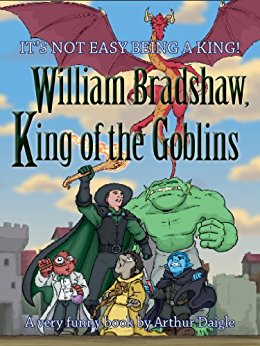 5. Not only are you a writer, but you love the natural world: tell us more about that passion! I have a degree in biology and am a lifetime gardener. This helps me make fantasy worlds that better follow real world laws. You wouldn’t think that matters, but there comes a point where even lovers of fantasy ask why basic facts of nature are being ignored. 6. I use soundtracks to help keep me on track with books. Do you have any writing rituals to keep you motivated and in the mood? I take long walks. Besides being good exercise, I find it helps me think. I imagine scenes from my books like short movie clips running in my head. These clips ‘run’ anywhere from a few seconds to five minutes long. Once I have enough of these mental clips, I sew them into a complete book and then begin writing. 7. I love sci-fi and Star Trek, so I have to ask: who’s better, Kirk or Picard? And why? Kirk. There is an episode in Next generation where Worf’s adopted brother alerts the Enterprise that a world with intelligent aliens is about to suffer a worldwide catastrophe that will wipe out all life. Picard replied that the Prime Directive required him to let the world’s inhabitants die. It was a legalistic response without humanity, and it basically meant that a society not advanced enough to ask for help deserved to die rather than “contaminate” it by helping, as if extinction was a better alternative. The episode really bothered me. Kirk would have said, “Saving innocent people is more important than the rules.” 8. Okay, now the big question: Star Trek or Star Wars? That’s a hard one because Star Wars has literally decades of TV shows and Star Wars has only the movies. I like both for different reasons. Trek has a wider universe with many sides (Klingon, Romulans, Cardasians and so forth). Wars did a better job of showing what life was like for the average man and the worlds looked more lived in. 9. So, you’ve just written a book: what’s next? Write more books. Like I said, it’s addictive. I’ve heard of the tortured writer and I just can’t relate to that. When I write I get into a sort of flow where time flies by unnoticed. It’s a good feeling when I make work I’m proud of, and whether my books sell well or not, I’ll always keep writing. Be sure to check out all of Arthur's books on AMAZON.COM!Every other Monday, we ask indie authors Five Questions about themselves and their fabulous new books. Looking for your next great read? You'll find it here, with these folks! 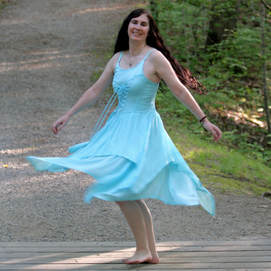 Lisa Shea, the fabulous prolific author & Medieval history buff Lisa Shea, the fabulous prolific author & Medieval history buff 1. Hi Lisa, and welcome to Wanderings! Our audience is dying to get to know you, so tell us a little bit about yourself! Greetings and Salutations, everyone! Writing has been my creative outlet since I could first hold a pen. My school bus rides were about an hour each way, and these were the days before smartphones. I spent the time inventing epic storylines with brave heroines and challenging obstacles. I now have over 300 works published on Amazon. I love all sorts of storylines. For fiction, I’ve written medieval romances, cozy mysteries, dystopian, science fiction, fantasy, time travel, historical fiction, and probably everything else in between. I’ve also written quite a number of non-fiction titles. 2. What do you do when you're not writing? When not writing I am vice president of the Blackstone Valley Art Association. I am fascinated with film photography, watercolors, cyanotypes, and a myriad of other styles of art. 3. I know when I write a book, I always have a particular person in mind as an audience. Who do you write for? I always write to allow the characters to come to life. It is in my nature to write as authentically as I can and to let the characters speak for themselves. I never try to plot them in a direction or force a certain ending. I don’t think about any third party person peering in on this world. I start with the characters. I think about what they would say. I consider how they would react. That then leads to new developments in their lives. It allows them to learn and grow in a way which comes naturally. I am often surprised about the directions the characters take and the way the story ends. I think that is a real joy of being a writer – to allow the creative process to blossom and unfold. I am thrilled that there are readers out there who enjoy my creations. 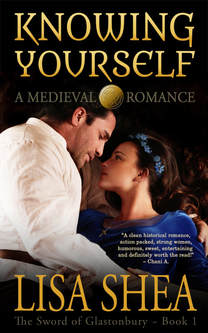 4. You have a background in medieval history: how does this contribute to your creative life? I have adored the medieval time period since I was very young. I have belonged to the Society for Creative Anachronisms (SCA) for many years – this allows me to take on the personae of a medieval woman. I sew and wear medieval dresses. I participate in medieval dance and play medieval instruments. I ride horses. I have learned to fight with a medieval long sword and dagger. I’ve been to quite a number of medieval locations and castles to get a sense of what it was like to live there. In my medieval stories, I always remember that there is a balance. A reader usually does not want a history lesson. They want to immerse themselves in another person’s life, if only for a short while. I use my knowledge of medieval food, drink, music, and other things in order to bring that world to life for my readers. 4. I know you love to travel. Do you set your stories in places you’ve been? I feel strongly that an author should write what they know. This is the best way to bring a story to rich life. A person who lives and breathes New York City every day will bring it to life in a way that a person living in Siberia just could not do, no matter how many books and websites the Siberian person read. But the Siberian person could create the most stunning portrayal of Siberia that existed, and the world would thrill in reading it. When I write my cozy zoo mystery series, I go to each zoo in order to capture the way the light falls across the statues and the feel of the petting zoo animals beneath my fingers. My Sutton Massachusetts mystery series is written a chapter-a- day as I explore my hometown. An environment comes to life due to its scents, textures, reflections, and other sensory attributes. These are things that shine when experienced in person. We all have stories to tell and we all have locations we know intimately. That is where a story truly comes to life – when an author shares that insight into what makes a place special.
The Secret of Camp Whispering Pines
Read this fun mystery as a stand-alone, or start with book #1
for only .99!
(all of my books are free with Kindle Unlimited!)
What could be better than hiking, swimming, and horseback riding? Having a mystery to solve, of course!
When Sam and Ally go off to summer camp together, they discover the secrets of Camp Whispering Pines. Set in the beautiful, rugged mountains of the Pacific Northwest, the clues are slowly revealed and it's up to the two girls to figure it out.
New friendships are formed, while at the same time enemies lurk nearby. The closer they get to uncovering the truth behind the camp, the further they are pushed into danger and deceit. Can Sam and Alley put all of the pieces together before it's too late? Follow them on another thrilling tale filled with excitement and adventure, along misty, high mountain trails, and deep ravines, where the answers wait to be found!
This fun middle grade series is being called a modern-day Nancy Drew. It will take you back to your Trixie Beldon days, but are in current social settings with real issues relevant to today's teens and pre-teens. They're clean, wholesome stories that you and your kids will devour!
Check out the whole series
Tara Ellis, an Amazon best selling author, lives in a small, rural town in Washington State set in the beautiful Pacific Northwest. She enjoys the quiet lifestyle with her two kids and several dogs. Tara was a firefighter/EMT, and worked in the medical field for many years, before committing herself to writing young adult and middle grade novels full-time.
Follow her on:
And join her NEWSLETTER
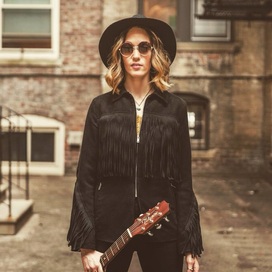 1. Tell us a little bit about yourself: who you are and where you come from: My name is Katie Harwood, I also go by Katie Louise and some others tbd haha. I grew up in a small town in NH and moved to California after finishing my first year of college trying grow up. Didn’t work out so well and ended up back on the East Coast after a brief stint of about 7 years meandering around the state of California and trying to finish art school. Finally made it back, grew somewhat up, got an art degree and went promptly to work in finance. The ultimate cliché. 2. When did you know that you wanted to be a musician/songwriter? There’s footage of me somewhere at months old playing with a fisher-price toy piano. That was always my proof that is was there from the beginning. I used music to cope at an early age, but the development of songwriting started when I started realizing that there wasn’t always a song for me that fit my emotional state. I knew I wanted to write my own music when I got sick of playing classical piano and singing opera pieces that I usually only used to impress boys into thinking I knew how to speak a different language. It worked, until I finally met one that actually spoke Italian. There’s a song about that too. 3. What kind of music do you write? The very first song I wrote was called “Die, Grandma, Die”. I was 7-years-old and had just lost my grandmother to cancer. I clearly write music mostly in a literal sense. Everything I put my hand to, has been in some way experienced, either by me or through others. The lyrics are meant to tell a story and I try and use them in such a way that puts them up for interpretation, but never something anyone has to try and figure out. 4. What inspires you? Spontaneity. People experience things on a daily basis, but there is always that one moment when the realization of something hits you. For me, it can be a lyric, or a melody. Whatever it is usually comes at the most inopportune time, when I’m either sleeping or in the supermarket or shower. It sounds silly, but I have a notebook full of one-liners that I wake up from dreams with and an iphone full of horrible sounding voice bites. I am inspired by the strength of the people that surround me and of my own. It’s taken me a long time to be inspired by my own life, but with time, I realized it’s worth sharing as well and have been told it has provided support for others, which is, if anything, the one thing I always wanted to accomplish. I am inspired by a lot of late 70’s/early 80’s era rock, folk and country. I like things to make sense, whether it be chord progression or the flow of words. I think a lot of the old school bands like Boston, The Stones and Steve Miller Band, and random singers like Garth Brooks, Cat Stevens or Stevie Nicks. There is a wide array of things I listen to. Inspiration has come from as far off as metal and/or punk music, which is a whole way of life in and of itself. 5. What message or inspiration do you hope to pass on to your listeners? Let things surprise you. Take chances. Really listen and take in what people are saying and find meaning in even the smallest things. Be inspired by yourself and the good things that happen as well as the bad. Don’t ever think timing isn’t for a reason. Bonus Question: What’s next for you? I have been working with a producer named Mike Davidson here in Boston and we just finished a successful crowdsourcing campaign that raised a little over $10,000. With that I’m on my way to head back into the studio to record my first album! I’m kind of just seeing where life take me right now based on that. I’m a free spirit when it comes to possibility. I have some other things in the works in terms of marketing and radio, but you’ll just have follow along to see where it goes ☺
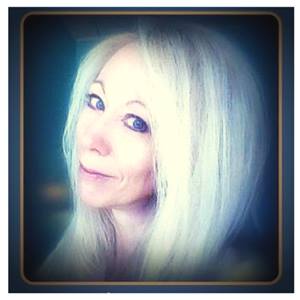 Over the course of the past few weeks, I got a chance to interview Jenna Brooks, a talented author, awesome editor, fierce Mother’s Rights activist, and former homeschooling mother of two. "Unconventional" is a word that particularly suits Jenna: she couldn’t resist turning the interview on me a few times! Jenna’s the author of award-winning October Snow, its sequel An Early Frost, and a new set of handbooks for survivors of domestic violence. Here, she discusses her new projects, her thoughts on evil and truth in the world today, and how her faith influences her writings. KT: The obligatory first question: what started you writing? JB: Dude. Really? I'm not one for self-introspection. It can turn paralyzing (not to mention, boring) real fast. Best I can tell you is, it's a compulsion. Always has been. C'mon. Go philosophical on me. Or maybe issues - let's give the reader something to talk about. KT: Okay, challenge accepted: Here are two questions: Your books, October Snow and An Early Frost center on strong female characters and their friendship with each other, something that can seem a rarity in books and movies these days. How do you feel women are generally represented in books and movies today? And how do you hope your books and characters speak to women today? JB: I don't believe that women are represented authentically at all in books and movies (or in any form of media, for that matter). Not these days, anyway. Generally speaking, I think the vapid, oversexed, emotionally over-dependent females that we too often see in art and in media are no more than the fantasies of a culture that has turned wholly contemptuous towards women, and we aren't portrayed realistically. It's an insidious kind of propaganda, designed to keep women silent - because the most powerful force of good known to mankind is a woman who knows her worth, and who has no problem with making her opinions known. As for the second question: I hope I help women to remember their dignity. To find their voices. While this culture debates to death every evil (or what is perceived as evil) out there, we aren't talking about the main reason that this culture is circling the drain: Women have been silenced, and the primary weapon used against us is shame. It's now arrived at the point where the very things that shamed us into silence - porn, faux-feminism, abortion, all resulting in the "Jezebel" theology of far too many churches - have been fully mainstreamed into our society. They're accepted as being normal. And when you consider these facts: 1. Very few women were in positions of institutional, media, or judicial/legislative power when these aberrations were promoted and incorporated - for our own good, they told us - and 2. That women are now blamed for the results... Well, you have to wonder if the greatest scam of all time has been played against women. KT: Dignity is a great word that you don't hear all that often. I notice that you use it a lot in After Awareness, your guide to helping battered women, which is based in part on your 10+ year experience helping domestic violence victims. What do you find is a major stumbling block to those who've lost their sense of dignity? JB: I'll answer, but you go first. What do you think is a stumbling block to women's dignity? Or, do you not regard it as an issue? 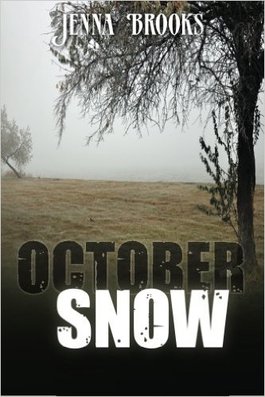 KT: Wait, who is giving the interview here? All right: the concept of dignity is suffering across both genders and I think a lot of it has to do with knowing who you are. Dignity means self-respect, a sense of pride in oneself, something that, by definition, takes time and effort to build. But how can your respect what you don't know or cannot define? We're largely choosing not to raise our children in religion, our families are scattered, and our national identity is being shattered. Even the concept of gender is becoming a fluid idea. If you don't know that you're a child of God, or your family, or if being patriotic is good, or whether or not you're even male or female, how can you know yourself enough to respect yourself? Truth is being redefined to mean "what is true for me or you at this particular moment". We learn largely through trial and error - but if there is no error, no truth that we cannot reason or talk our way around, no good, no bad, no wrong, no right, and everything can change on a dime... How can you build anything, including self-respect, on shifting sand? So, that is my two-cents and I turn the camera back to you: What do you find is a major stumbling block to those who've lost their sense of dignity? And how can they overcome it? JB: Real quick, on your comments about truth: The truth is not a wide road, and it's not a free-flowing, individualistic narrative that's defined by one's personal experiences. It's a pinpoint of stark reality, never changing, created by God and no one else. And we either accept it or we reject it - and I believe that creating alternate realities is a factor in the emotional instability we see all around us. I mean, I disagree with that famous quote about the definition of insanity - that it's doing the same thing over and over while expecting a different result. If that were accurate, then no one is sane. I think insanity is indicated by the level of outrage a person experiences when the results are always the same. And we can tell the truth about how we feel, but when we term our feelings as the ultimate "truth" - and worse yet, deem them to be divinely inspired - we're tap-dancing all around the unpardonable sin. Just my opinion. Okay, the biggest stumbling blocks to dignity: For males, I say it's fear of being a hypocrite - which, when you boil it down, is actually a form of cowardice. This culture has gone off the rails; yet instead of doing the required one-eighty and setting the example for our children, they tend to hide inside their shame. The only way to overcome that is through three little words: "I was wrong." And then make it right. For women...? Okay, here's another question for you (and again, generally speaking): How do you think people react to a woman who thinks highly of herself? Who sets immovable standards for how she will be treated? KT: People who act with dignity and self-respect tend to inspire a like response in others. Those who are easily threatened (bullies, the childish, etc) will probably react poorly, as they would when confronted with other good things in life. As to your second question, in a free society (absent of slavery or serfdom) the dignified woman (or man) sets the standard for themselves. However, dignity is not determined by the treatment of others: it is both inherent and assumed by the individual. Since we're both Christian, I can comfortably say that God values us and it is from Him alone that we receive our worth. Being treated badly by others does not change our worth (because it has not that power) and need not change our self-respect: some examples of dignity maintained under fire would be Rosa Parks, Mother Theresa, Booker T. Washington, and Maximilian Kolbe. What bad treatment can do is blind us to our sense of worth - which is, indeed, a terrible, terrible crime. Okay, back at you. Your books deal heavily with recovering a sense of self after abuse, both verbal and physical. What is a practical way a friend can help a recovering victim towards recovering her (or his) true sense of worth and self-respect? Or is this something that the victim can only do alone? 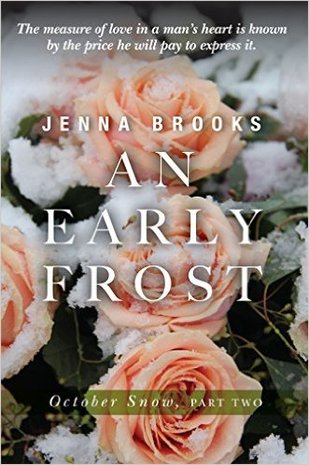 JB: I dunno, Traynor... I feel like you sidestepped (but only slightly) the issue of the response to women who display their dignity. But I'll let that go. (Yeah. That's bait.) Last question first: Some women are fully able to recover on their own, but with no thanks to a culture and a court system that I believe is, at best, lukewarm about actually advocating for abused women. In too many cases, our institutions are actually allies of the criminal. I suppose that's a whole other topic, though. As for the first question: I have to take brief issue with the way you phrased it, because I don't agree with the notion that violence against men is even in the same universe as violence against women; if nothing else, the results are vastly different, as are the options for escape and subsequent rehabilitation. The determination to equalize the genders in all things is, on its face, a troubling cultural trend - and when it comes to DV, the results can be deadly. That said, helping a battered woman can be a minefield. The first thing that caring people can do, and should do, is to get educated. Most people are badly misinformed about what's really going on out there, and there's plenty of research that blows a hole through the conventional ideas about DV and its targets. And definitely, everyone needs to get up-to-speed on the truth about the Family Court industry, especially if they still believe that the courts favor mothers. They don't, and abused mothers and children are often further traumatized by the system's acceptance of (alliance with?) the Father's Rights movement. (Anyone who wants to learn more can start here.) After becoming fully educated - and having avoided the Father's Rights propaganda while doing so - there's a process to helping a target survive and then get back on her feet. I wrote that handbook that explains what to do and what not to do, but the best advice I can offer is this: Never lose sight of the fact that women who are terrorized have experienced trauma. Sounds obvious, right? Yet if we're honest, doesn't our society pin some of the responsibility for an abuser's felonies directly on the woman he battered? And after she escapes, if indeed she does survive him, doesn't our society treat her like she should be able to simply start her life over again - no problem? Finally, do what you can to change the culture, because the roots of DV are now firmly planted within our lives. Again, I have suggestions for that in After Awareness. KT: Yes, I agree that we tend to just want the victim to 'just move on'. I suppose this could be seen as a reflection of our collective guilt as a society. After all, most DV abuse happens right under our noses, to people that we see on the playgrounds, at stores, in parties, schools, churches, and book clubs, and yet often we're caught unawares. So, we have your handbooks to learn more. Is there a place for DV victims and their friends to go to discuss the often overwhelming task of rebuilding a life and self? JB: Not usually - not for what happens after a DV situation. That's why I wrote the books. Are we going to talk about literature soon? KT: Of course we are! Which authors or books have most heavily influenced you? JB: My writing isn't influenced by other books, but my life is directed by The Bible, and I read non-fiction from authors such as Dan Allender and Charles Stanley. I keep Viktor Frankl's Man's Search for Meaning on my desk. That said, I'm inspired by my interactions with people - and when I come away angry enough, I write. 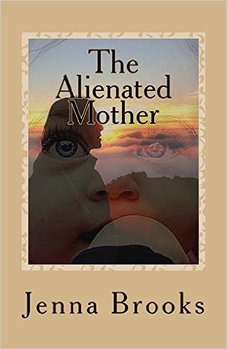 KT: You need to explain that last comment. JB: I think my anger is my most productive resource for my work. It motivates me. And I often wonder why so many people have turned tepid toward the evil in the world - how it is that they can look directly at the destruction of another soul and say nothing, do nothing. Or worse, find a way to blame the one who is being oppressed. Every time I think I'd like to go do something else, I'm reminded of a couple of people who were very close to me, whose lives was taken apart by violence. Not so much by the actual abuser, but by the ignorance and subsequent apathy of those around them. And I decide to stay in the fight. I think I got off topic. Sorry. KT: No worries! People have compared your books to Stephen King, though yours do not feature the supernatural. How do you feel about that comparison? Do you think it's apt? JB: Stephen King? I don't recall that one. I've heard Gillian Flynn and Liane Moriarty, because my novels - especially October Snow - mess with the reader's head. I got a couple of comments referencing Hitchcock (not sure why that would be, though), but I haven't heard a comparison to King. Speaking of Hitchcock, I so would put your books up there with his movies, but we'd have to also include comparisons to the great classic romances of that era. Like Necessary Evil - who would you cast as Greg and Maddie? Same for Summer Shadows: who would play Robert and Julia? KT: Hey, I'm supposed to be interviewing you, not the other way around! Seriously, I don't mind telling you who I'd cast in my books (though once you found out who inspired Gregory Randall, you'd throw something at me), but you're the subject, so I'm turning the question back on you: if you could cast whomever you'd like to play Josie, Samantha, and Maxine, who would play them? JB: No idea. No, actually, I think Chelsea Noble would be perfect as Jo. The others... I haven't thought about that in a long time. (And readers: Killarney told me privately which famous Hollywood actor inspired the character of Greg Randall. I LOVE it.) KT: What future projects can the readers expect from you? JB: I have three novels that I hope to launch in the next two years. Meltdown is Book Three of the October Snow series. It's a straight-up murder mystery, where Jack Seever turns up dead and the main suspects are the survivors from the first two books. I'm having a ball with this one. I never wrote a murder mystery before. Ventriloquist is a bit of a mindbender. Actually, it's a huge mindbender, deals with stalking - and what happens when the tables are turned. None So Free will come out in 2017. It's a tearjerker, and it may be my favorite project ever. By the way, I'll offer the handbooks After Awareness and The Alienated Mother for free on the day you post this interview, so let me know when. Know what? I'll price my novels at 50% off, too. I'll make an event out of it. Thanks for the chat. It was a lot of fun. KT: You can find Jenna's website at Jenna Brooks Online, and follow her on Twitter at @shesjennab. And now for something completely different...
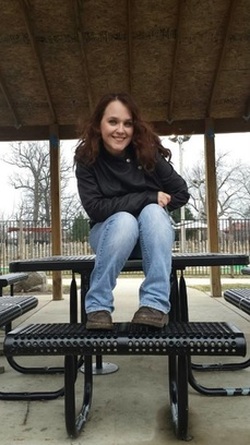 Melodie Ramone Melodie Ramone So I guess you know that I have to start with the usual question: Why do you write? Sure! But it’ll be the same answer as always. I write because I don’t have a choice. Seriously. I’ve been in publishing since I was twelve years old and there have been times that I thought it would be interesting to do something else, but it couldn’t ever happen because at the end of the day I have stories blasting through my head and characters that won’t let me sleep. Now that we've gotten that out of the way, I am really interested in the reasons you wrote this particular book. To be honest, I’m very frustrated with the lack of honesty in our culture today. We’re trained to behave a certain way, and that way curtails to pleasing and sustaining a select few while the masses suffer. No one is supposed to speak out and the prevalence, and acceptance, of silence encompasses most subjects, honestly. It drowns people. I’m very rebellious. In my life and in my writing. And I’m uncompromisingly honest, but I can only express my own truth. I can’t speak for all the wrongs in the world, and I don’t claim to, but I can speak for the suffering of women crushed in the fists of misogyny. I’ve lived it. It’s everywhere and most of the time it’s so normal, or so subtle that women don’t even recognize it for what it is. It was the normal, subtle things – the lies we are taught to believe and base our behavior on - that I wanted to point out. I wanted to show the undercurrent that creates a chain reaction in a woman who figures out the game and can’t take wearing the mask anymore. So she changes the rules and works it to her advantage. It happened in my own life and I survived. In fact, I won the game. I wanted to show how it happens, and why a woman would do a drastic thing to save her own sanity while drowning in misogyny, and the aftermath of her actions as her family, and society, reacts to her decision of destroying the silence and the status quo of what she “should have done.” So why "Lights of Polaris"? That's an unusual title. There is a wonderful story from Greek Mythology about Polaris, the daughter of Apollo. It’s detailed in the book, but it’s a story of love, tragedy and hope. It’s also about survival after obliteration and becoming something greater than you were. Polaris is also the North Star and the source of finding direction when you are lost, so she’s deeply symbolic in that as well. 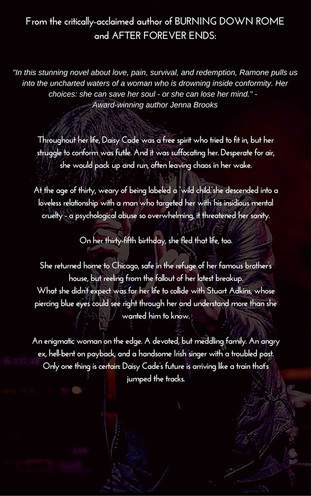 How many of your real-life experiences are in this book? Do I have to admit that? Uh, I really can’t because if I did the man I based Daniel on would sue me and win in court. Not all of it’s plucked straight from the pages of my own life, but I’d give it a solid ninety percent, as for Daisy’s experience. As for the rest… that was just my over-eager imagination working out subconscious issues. You have a reputation for being "edgy". Is that a deliberate thing? Not at all. I’ve been through a lot in my lifetime. Edgy’s just who I am, I guess. Other people say that, not me. But I get it all the time. When I was a girl, in the environment I was raised in, being honest got you in huge trouble. Everything was premeditated and any sort of authentic response was unforgivable and punished far worse than the crime. Somewhere deep inside, I knew that didn’t work, and that kind of retribution and shame wasn’t going to serve me in life if I turned it on myself. I knew all it was going to do was keep me trapped in a destructive pattern, so I decided if I couldn’t be outwardly honest, I was going to be that way with myself. And then, when I left that environment and I didn’t have to hide my thoughts, I suppose I became what people consider abrasive, because I don’t pull punches. But I’m not mean. I don’t abide by cruelty. Ever. I don’t dish it out, but I won’t stand back and watch it happen, either. On a scale of 1-10, how edgy are you in your personal life? Then give some details. That’s hard for me to judge. I’m actually a really sweet person. I just have a low tolerance level for unkindness. This is what I think: everybody is set on this earth worthy of empathy and respect. Therefore, no one has the right to walk around suppressing and disrespecting another being. I’m the nicest person on the planet, but do not come at me with unwarranted insolence, because you have no idea who you are dealing with. I do not abide rudeness. Ever. Obviously "Lights of Polaris" delves into some pretty deep issues. I've also heard from reviewers that it's is an unflinching look into what women tend to think, and how they interact with each other when they get real. I really wanted to show how women truly are – what they think, how deeply they feel, and how the world around them affects their decisions. I wanted to show them damaged and frozen, and then the lioness inside awakening. It was really important, too, that the women in the book spoke and interacted like women actually do. There are no negligees or pillow fights in Lights of Polaris. I tried to avoid any stereotypes and be bold with the sacred truths that women hold – and too often keep secret because of the shame society places on them. 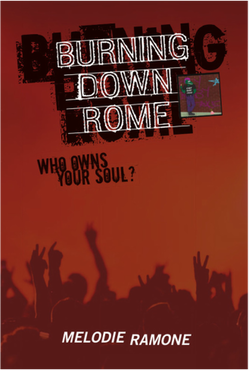 The main character, "Daisy Cade", was in your previous novel, Burning Down Rome. What made you decide she needed her own book? It was funny, because as I was writing Burning Down Rome, there were background characters that had nothing really to do with that book. I mentioned three names in Burning Down Rome only once or twice – Cooper Thomson, Stuart Adkins, and Daisy Cade. But somehow I knew that all three had major stories. I just didn’t know they were connected to each other, or how closely. Writing can be a very schizophrenic thing. I literally see visions and hear voices when I’m falling asleep at night. Daisy kind of haunted me. Kid Cade had five sisters, but she was the one who didn’t jump out at me. It was that quiet that I became interested in, and I couldn’t let the thought of her go, so I focused in and what I found was a deeply fascinating woman who reflected the strangulation and torture of what conformity can do to some people. And then the other voices began… She's a high-functioning autistic woman, which is an interesting choice for a main character. Why did you decide on that for her character? Well, I’m high functioning Aspergers, so I applied that part of myself to Daisy so she could make sense to me, honestly. Because she’s weird. She’s a total oddball, but she’s also wonderful, warm and embraceable. But she’s often terribly misunderstood, too. I suppose putting a label on her was almost an easy way out for me to let the reader understand her sometimes unusual behavior. Do readers need to read Burning Down Rome before Lights of Polaris? I’d say no, but I’d also say it would help to absorb some of the depth of the story. The characters from Burning Down Rome are all in Lights of Polaris, so if you’ve read Burning Down Rome, you’ll know what happens to the kids from Cry Baby Jake down the road. It makes it a bit more well-rounded and interesting, but Lights of Polaris definitely stands alone. About you, personally: if you could wave a wand and rid the world of only one problem, what would it be? Ignorance. I really wish people would educate themselves and stop believing what they’re told. Open your eyes. I’d have everybody question everything all the time and realize that they are empowered already and don’t need permission to take control of their own minds and lives. So here's the part of the interview where I ask: what about your next project? It may be asked, but I don’t discuss upcoming projects. I will say I’m looking at writing a series, though, and it’s nothing like I’ve ever written before. Well, I know you'll publish more novels, 'cause that's what you do. I heard that you recently turned down an offer to sign with agents. What made you decide to stay Indie? Ouch. Yeah. That. Well, this is the thing. The traditional publishing industry likes to keep things in a bottle – a specific formula of plot versus character versus page count. I think that’s fine for a bit of light reading, or if somebody reads for entertainment alone. But I believe there are bigger books that need to be written and stories that shouldn’t be cut by 30,000 words because if they are, they lose their impact. Books can change lives. Some books have a soul of their own. Some stories are real. Sometimes fiction is more real than truth. And when that happens, an author has an obligation not to compromise the integrity of that work. So I didn’t compromise. Maybe down the road, with the right agent and the right house, I can find a place that I feel won’t ask me to concede what I believe in. But I don’t know. I’m way too punk rock to want to cooperate a whole lot when it comes to my art. Edgy, right? Yeah. I guess maybe I do live up to that rep sometimes. For more information about Melodie and her work, visit her website or follow her on Twitter. You can pre-order Lights of Polaris today, or read Chapter One on her website right now!
|
The BlogWelcome to Categories
All
|
Copyright © Killarney Traynor
All Rights Reserved.
No part of this website may be reproduced without
the Owner's express consent. [Backlinks allowed.]
All Rights Reserved.
No part of this website may be reproduced without
the Owner's express consent. [Backlinks allowed.]

